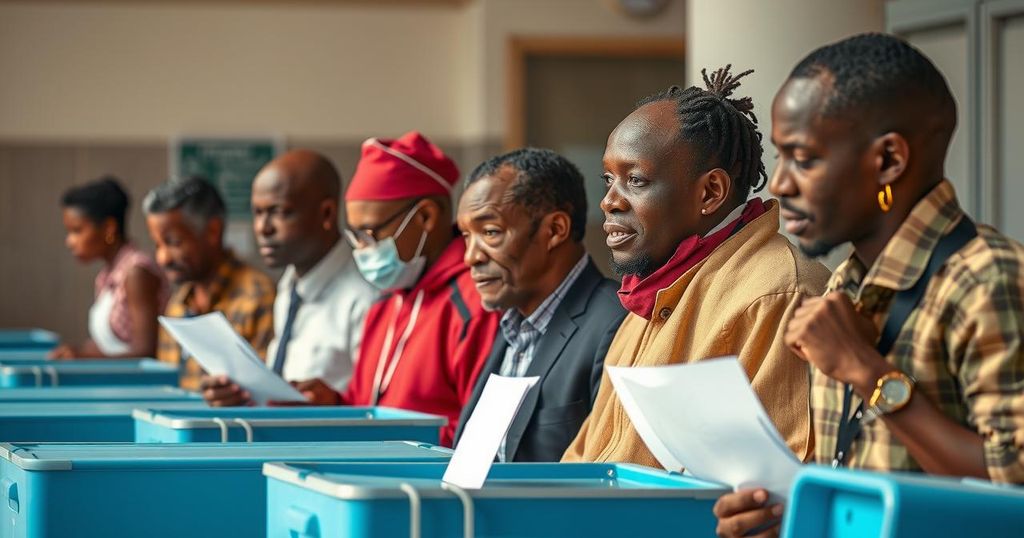Chad conducted general elections aimed at moving away from military rule; however, turnout was only 38% as opposition groups called for a boycott. Opposition leaders claimed the election results were pre-determined, and voter dissatisfaction was evident, despite government assurances of a historic change. The elections occur against a backdrop of insecurity and socio-economic challenges in the region.
On Sunday, Chad held a general election, a pivotal moment in its ongoing transition from military governance to civilian rule. However, voter turnout was reported at a mere 38 percent, as many citizens heeded calls from opposition parties to boycott the elections. Despite President Mahamat Idriss Deby’s assurances of a historic day, opposition leaders, led by Succes Masra, stated that the results were predetermined and labeled the electoral process as illegitimate.
Election officials attributed the low turnout to external factors such as weather conditions, particularly in affluent districts where ruling officials reside. Nonetheless, widespread apathy was palpable among the voters, with individuals expressing skepticism regarding the electoral integrity, deeming participation futile. Some opposition supporters pointed out discrepancies, claiming that substantive changes in governance were unlikely.
Chad’s military government oversaw the elections as a step towards democracy, following the death of former President Idriss Deby in 2021. Activated security measures allowed military personnel and nomadic voters to cast their ballots a day earlier, reflecting challenges faced by the nation, including ongoing jihadist threats and local disputes exacerbated by climate change.
Chad’s political landscape has been tumultuous, particularly following the transition from the long-standing rule of Idriss Deby to his son, Mahamat Idriss Deby Itno, in 2021 after the former’s death. The country has been under military rule since, prompting calls for an official return to civilian governance. Opponents of the military regime have vocally rejected the legitimacy of the electoral process, citing pre-determined outcomes and lack of genuine political competition as reasons for their calls to boycott the elections. Furthermore, the backdrop of instability in the region, including conflicts with Boko Haram and issues stemming from climate change, adds to the complexity of the political situation in Chad.
In summary, the recent elections in Chad illustrate the significant political hurdles facing the nation as it attempts to transition from military to civilian rule. Opposition boycotts and reported voter apathy reflect widespread dissatisfaction with the electoral process, while the government attempts to frame the election as a democratic milestone. Tensions from both local and regional issues continue to challenge the establishment of a stable and just governance structure in Chad.
Original Source: www.myleaderpaper.com






